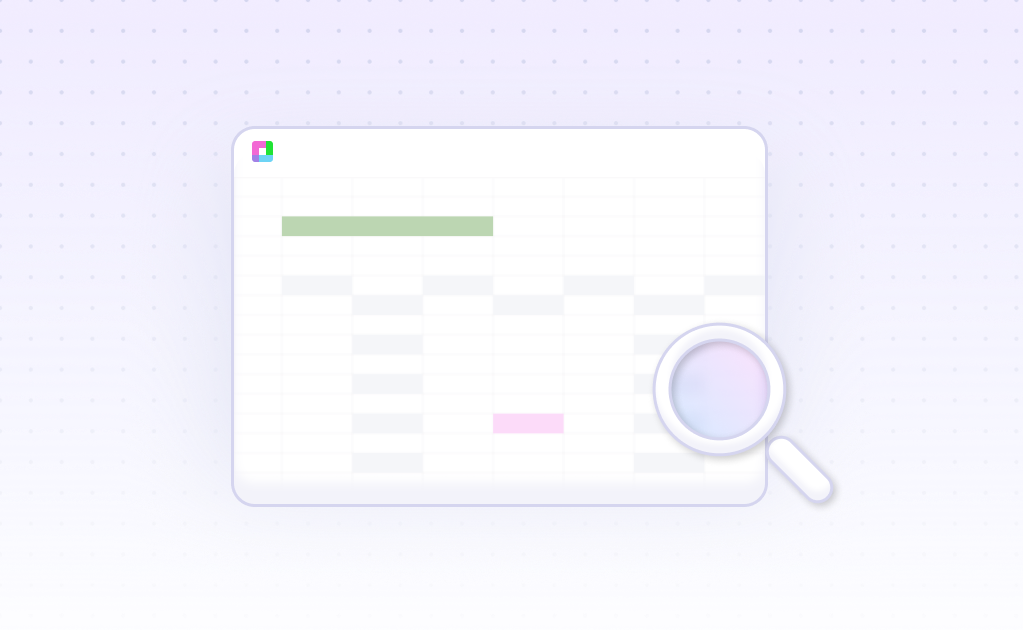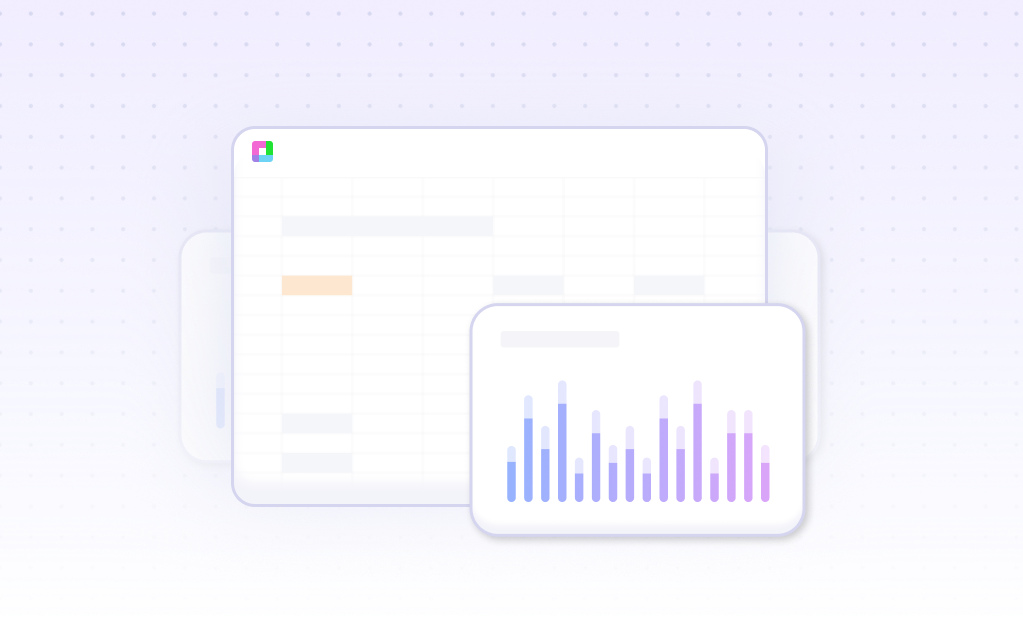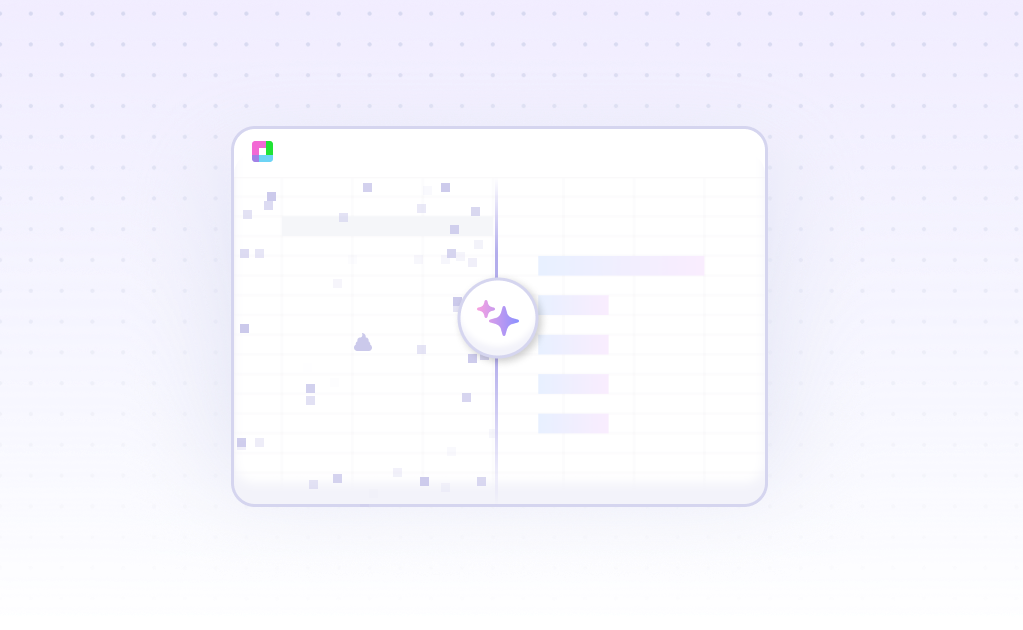
The autonomous vehicle revolution generates massive amounts of data every second. From LIDAR point clouds to camera feeds, GPS coordinates to acceleration metrics – modern self-driving cars are essentially computers on wheels, constantly collecting and processing information.
But here's the challenge: all that data means nothing without proper analysis. Whether you're an automotive engineer validating safety systems, a data scientist optimizing route planning algorithms, or a fleet manager tracking vehicle performance, you need tools that can handle the complexity of real-time automotive data analysis.
That's where Sourcetable transforms the game. Instead of wrestling with complex coding environments or waiting for IT support, you can analyze autonomous vehicle data directly in a familiar spreadsheet interface – powered by AI that understands automotive metrics.
Why Choose Sourcetable for AV Data Analysis
Transform raw vehicle data into insights that drive safer, smarter autonomous systems
Real-Time Safety Monitoring
Track critical safety metrics like collision avoidance response times, sensor fusion accuracy, and emergency braking performance in real-time dashboards.
Multi-Sensor Data Fusion
Combine LIDAR, camera, radar, and GPS data streams into unified analytics. No complex coding required – just natural language queries to your data.
Performance Benchmarking
Compare vehicle performance across different weather conditions, traffic scenarios, and route types. Identify optimization opportunities instantly.
Predictive Maintenance Insights
Analyze sensor degradation patterns and component wear to predict maintenance needs before failures occur. Reduce downtime and ensure safety.
Route Optimization Analytics
Evaluate energy efficiency, travel time optimization, and passenger comfort metrics across different routing algorithms and real-world conditions.
Regulatory Compliance Tracking
Automatically generate compliance reports for safety standards, track testing milestones, and maintain audit trails for regulatory submissions.
Autonomous Vehicle Analytics in Action
See how automotive teams use Sourcetable to solve real AV data challenges
Safety System Validation
A major automotive manufacturer needed to validate their emergency braking system across 50,000 test scenarios. Using Sourcetable, they imported sensor logs, crash test data, and simulation results. AI analysis revealed that braking performance degraded 15% in wet conditions with tire temperatures below 40°F – a critical finding that led to algorithm improvements before production.
Fleet Performance Optimization
An autonomous taxi service analyzed 100,000+ rides to optimize their routing algorithms. By combining GPS tracks, traffic data, and passenger feedback in Sourcetable, they discovered that avoiding highways during rush hour reduced trip time by 12% while improving passenger comfort scores by 18%.
Sensor Calibration Analysis
A research team studying LIDAR accuracy across different weather conditions processed millions of point cloud measurements. Sourcetable's AI identified that accuracy dropped 8% in fog but remained stable in rain – insights that directly influenced sensor placement and calibration protocols.
Energy Efficiency Studies
An electric AV development team tracked energy consumption across urban, highway, and mixed driving scenarios. Analysis revealed that regenerative braking efficiency varied 25% based on traffic patterns, leading to software optimizations that increased range by 8%.
From Raw AV Data to Actionable Insights
Transform complex vehicle telemetry into clear analytics in four simple steps
Import Your Vehicle Data
Connect directly to your data sources – whether it's real-time telemetry streams, historical log files, or simulation outputs. Sourcetable handles CAN bus data, sensor logs, GPS traces, and more. No data engineering required.
Ask Questions in Plain English
Instead of writing complex queries, simply ask: 'Show me safety incidents by weather condition' or 'Compare energy efficiency across routes.' Our AI understands automotive terminology and generates the analysis automatically.
Get AI-Powered Insights
Sourcetable's AI doesn't just crunch numbers – it understands automotive contexts. It can identify anomalies in sensor data, correlate performance metrics with environmental conditions, and suggest optimizations based on industry best practices.
Share and Collaborate
Generate automated reports for stakeholders, create real-time dashboards for operations teams, and export findings for regulatory submissions. Keep everyone aligned with data-driven insights.
What AV Data Can You Analyze?
Sourcetable works with all major autonomous vehicle data formats and sources:
Sensor Data
Vehicle Telemetry
Environmental & Context Data
Common Questions About AV Data Analysis
Can Sourcetable handle the massive data volumes from autonomous vehicles?
Yes, Sourcetable is designed for big data analytics. We can process terabytes of sensor data, real-time telemetry streams, and historical logs. Our AI optimizes queries automatically, so you get fast results even with massive datasets. Plus, you can connect directly to cloud storage and data lakes without moving data around.
How does Sourcetable ensure data security for sensitive AV development data?
Security is paramount for automotive data. Sourcetable provides enterprise-grade encryption, SOC 2 compliance, and supports on-premises deployment for sensitive development work. Your proprietary algorithms, test data, and performance metrics remain completely secure and under your control.
Do I need programming skills to analyze complex sensor fusion data?
Not at all. Sourcetable's AI understands automotive terminology and can process complex multi-sensor data through natural language queries. Ask questions like 'correlate LIDAR accuracy with weather conditions' or 'show me brake performance trends' and get instant visualizations and insights.
Can I integrate Sourcetable with our existing automotive testing tools?
Absolutely. Sourcetable connects with popular automotive tools including MATLAB/Simulink, CANoe, Vector tools, and major simulation platforms. We also support standard automotive data formats like MDF4, ASC, and custom proprietary formats through our flexible import system.
How quickly can I get insights from real-time vehicle data?
Sourcetable processes real-time data streams with sub-second latency. You can set up live dashboards showing current vehicle performance, safety metrics, and system status. Critical alerts and anomaly detection happen in real-time, so you can respond immediately to any issues.
Can Sourcetable help with regulatory compliance and safety reporting?
Yes, Sourcetable includes templates for common automotive safety standards including ISO 26262, NHTSA guidelines, and other regulatory frameworks. Generate compliance reports automatically, track safety metrics over time, and maintain audit trails for regulatory submissions.
Frequently Asked Questions
If your question is not covered here, you can contact our team.
Contact Us




